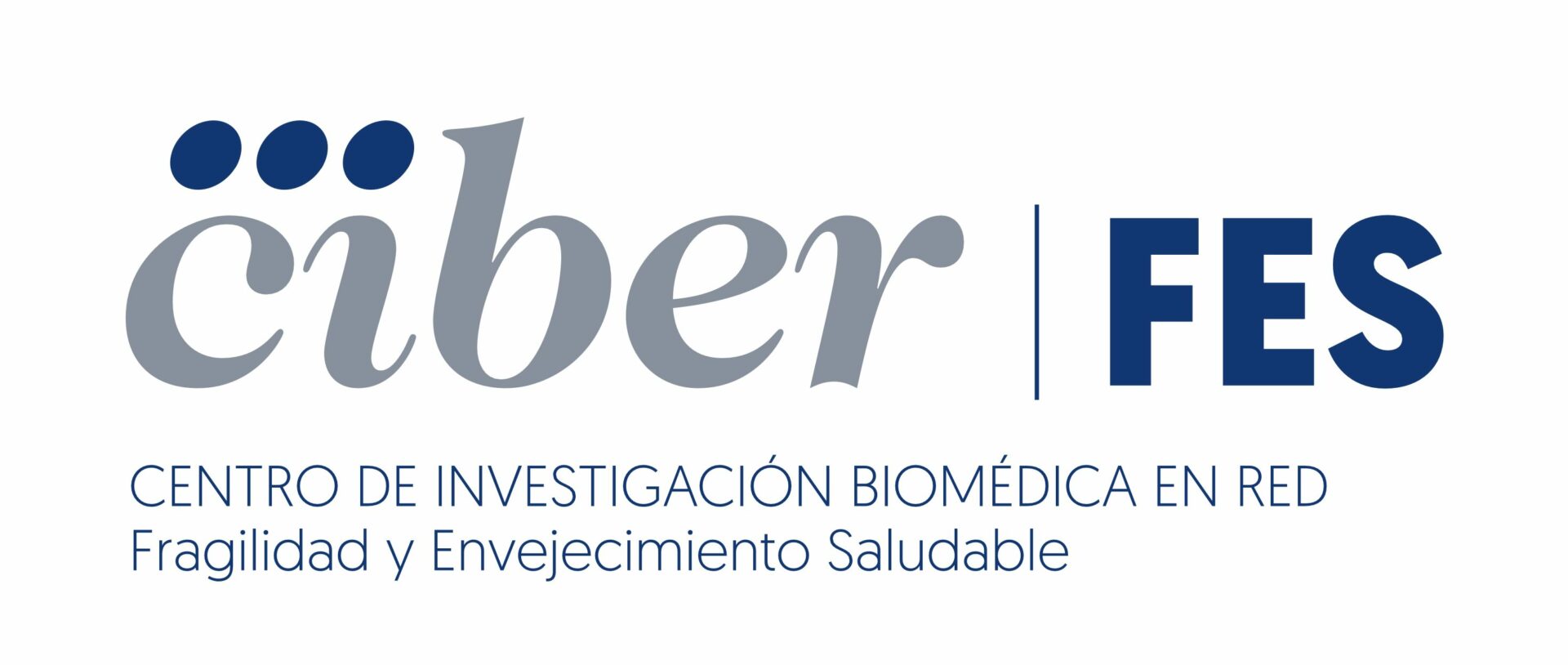Research in Nutrition, Health, Metabolomics, and Exposome
Our research aims to identify nutritional biomarkers associated with healthy dietary patterns through the study of metabolomics and the identification of metabotypes, nutritypes, and phenotypes related to frailty and healthy aging, in order to prevent the early onset of diseases and disabilities.
The group’s research adheres to the FAIR Principles—Findable, Accessible, Interoperable, and Reusable (Wilkinson et al., 2016).
Characterization of the human exposome through a large-scale, comprehensive, and quantitative multi-analytical metabolomics platform
This methodology, published in Analytical Chemistry in 2020, was awarded Research Article of the Year 2021 by the American Chemical Society, the International Journal of Obesity, the Journal of Agricultural and Food Chemistry, and Analytical Chemistry itself.
The Exposome-UB methodology enables the simultaneous characterization of the endogenous metabolome, food-derived metabolites, pharmaceutical products, household chemicals, environmental contaminants, and microbiota-derived compounds—analyzing nearly 2,000 metabolites in total.
The clinical potential of this methodology was validated in a dietary intervention study as a proof of concept (doi: 10.1021/acs.analchem.0c02008 ; doi: 10.1038/s41366-020-0628-1 ; doi: 10.1021/acs.jafc.8b07023).
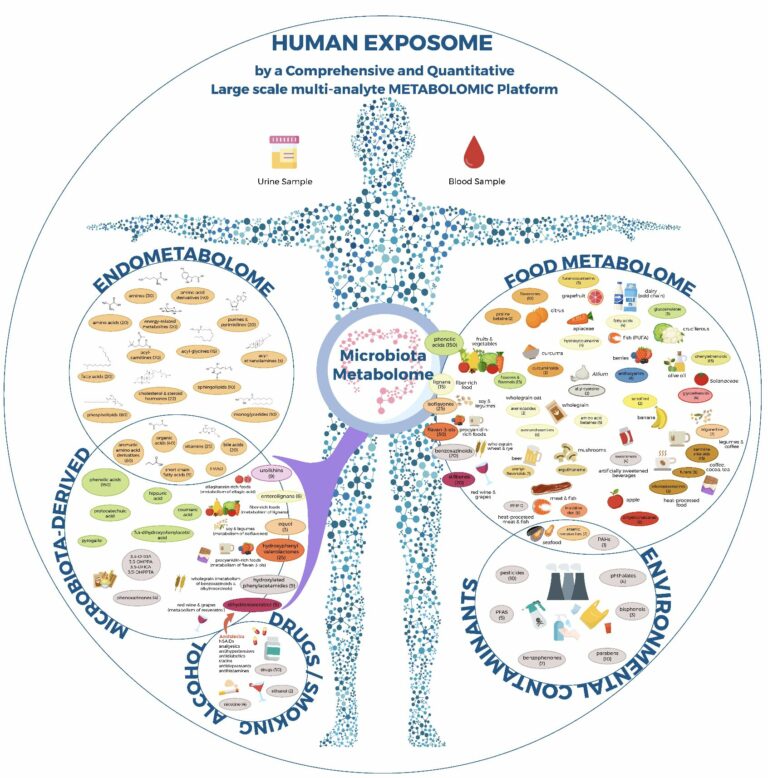
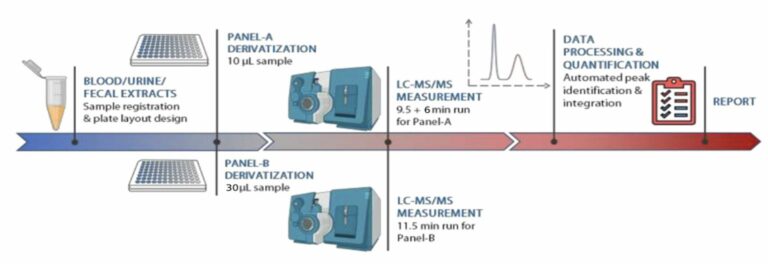
Innovation in Clinical Metabolomics: Development of the MEGA Platform
In collaboration with the Metabolomics Innovation Centre (TMIC) and the University of Alberta, we have developed an innovative metabolomics panel capable of quantifying over 700 metabolites in serum and plasma, essential for clinical research and biomarker discovery.
The MEGA assay employs liquid chromatography coupled with mass spectrometry (LC-MS/MS) in multiple reaction monitoring (MRM) mode, ensuring high precision and comprehensive metabolite coverage.
RESEARCH LINES
-

Study of nutritional biomarkers associated with dietary patterns, polyphenols and bioactive compounds, metabotypes and disease risk phenotypes.
The development of new lifestyle biomarkers, including nutritional or dietary exposure markers, helps us understand the role of diet in the development and/or prevention of diseases.
-

Development of food composition tables of bioactive components of interest in nutritional epidemiology.
The bioactive compounds in foods are non-nutritional constituents present in small amounts that can provide health benefits. Incorporating these compounds into dietary recommendations represents a scientific advancement in evidence-based nutrition.
-

Development of databases of biomarkers of intake and biomarkers of disease risk by metabolomics approach.
The consumption of foods rich in phytochemicals has been associated with the prevention of cardiovascular and metabolic diseases in various populations.
-

Standardization of metabolomic analysis protocols in biological samples.
-

Bioinformatics tools for biological interpretation and visualization.
See moreOur group has developed tools such as the Food-Biomarker Ontology (FOBI), the first ontology designed to integrate metabolomics and nutrition data, and POMAShiny.
-

Precision and personalized nutrition by studying the effects of dietary patterns and the role of the microbiota-gut-organs axis in healthy aging.
Precision nutrition approaches consider various factors, including genetics, gender, environmental characteristics (e.g., dietary habits, eating behavior, and physical activity), microbiota, and metabolome. The key challenge is to characterize phenotypic differences between individuals that contribute to health status.
-

Scientific evaluation of food, nutrition, and health messages present in society, and the development of a resource for informed decision-making based on scientific evidence.
A research line led by Dr. Montse Rabassa aims to combat misinformation in nutrition and health by providing reliable and accessible content. This initiative empowers women at different life stages, helping them make informed, evidence-based decisions about their diet and well-being.
Discover the published papers by the group
Clinical Studies
Clinical studies are essential to advance the understanding of disease development and promote research into new treatments based on nutrition and precision medicine.
We work with biological samples such as blood, urine, and stool in both observational and interventional studies. Through targeted metabolomics and exposome analysis, we can identify, quantify, and analyze over 2,000 health biomarkers.
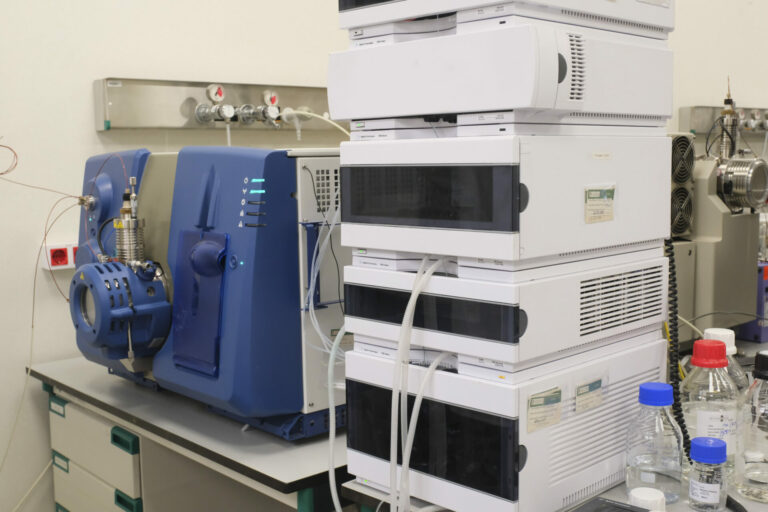

In-house Software Development
Our group has developed tools such as Food-Biomarker Ontology (FOBI) (Castellano-Escuder P, et al., 2020), the first ontology designed to integrate metabolomics and nutrition data, and POMAShiny (Castellano-Escuder P, et al., 2021), which provides:
- Univariate and multivariate statistical methods
- Dimensionality reduction techniques
- Feature selection approaches
- Regularized regression analysis
- Machine learning classification algorithms
- Predictive modeling strategies
- High-quality interactive visualization options
In line with FAIR principles, both the source code and data files are available in public repositories on GitHub.
Quantitative targeted metabolomic panels for exposome, environment, nutritional, gut microbiota & clinical biomarker analysis
To make targeted metabolomics more accessible and valuable to a broader metabolomics and exposomics audience, we have developed two new targeted platforms (see attached documents):
- MEGA Analysis kit – designed for clinical biomarker analysis.
- Exposomics Analysis kit – providing a comprehensive characterization of the human exposome by detecting lifestyle-related biomarkers.
The combination of these two platforms enables the absolute quantification of over 1,800 metabolites, metabolite sums, and metabolite ratios, making it the most comprehensive targeted metabolomics study to date.
MEGA and Exposomics Assays have already been successfully applied in large-scale clinical, nutritional, microbiota, and environmental metabolomics research and innovation.
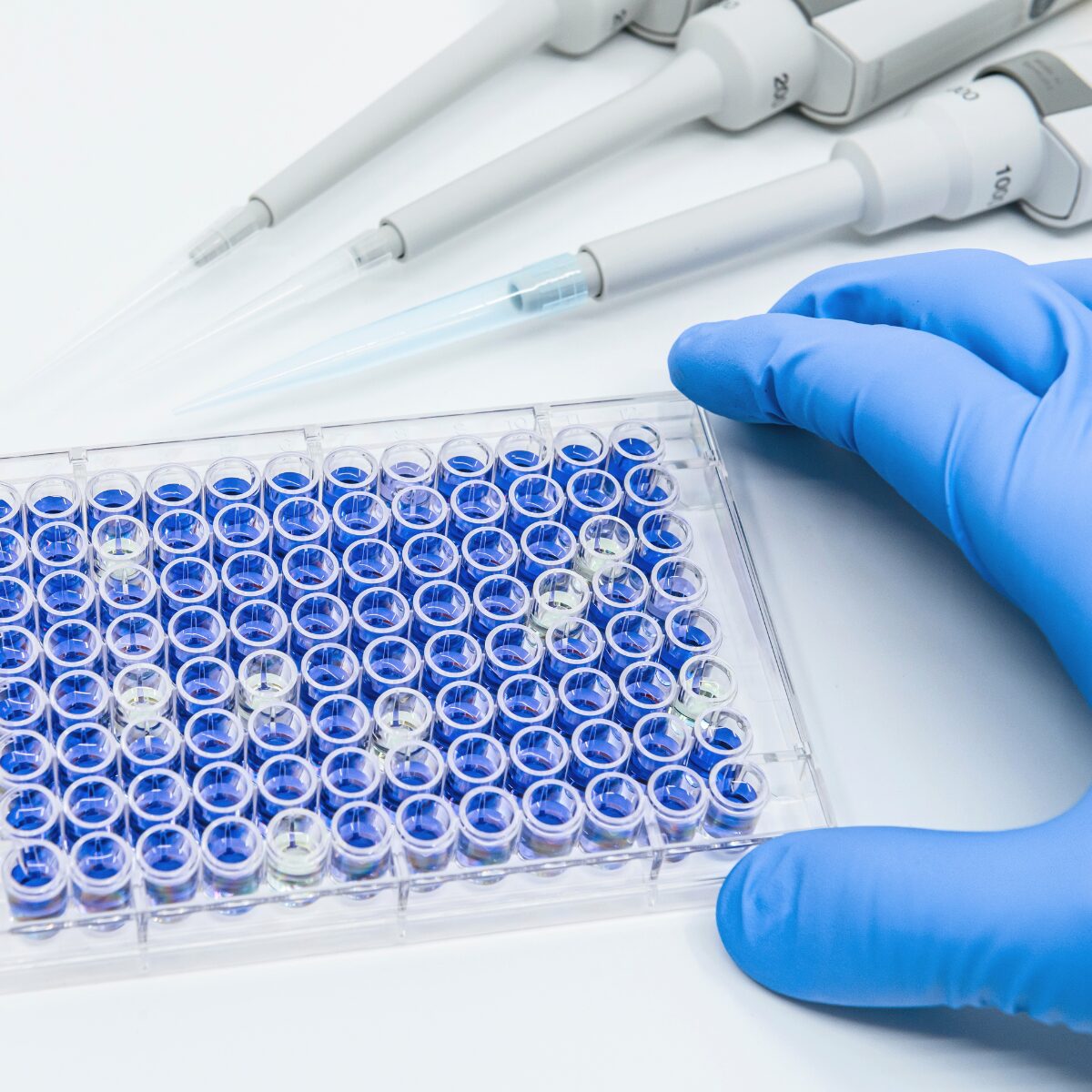

How can we help you?
Department of Nutrition, Food Science, and Gastronomy
Faculty of Pharmacy and Food Sciences, INSA-UB
University of Barcelona
Diagonal Campus
Avda. Joan XXIII, 27-31, Building B
08028 – Barcelona























